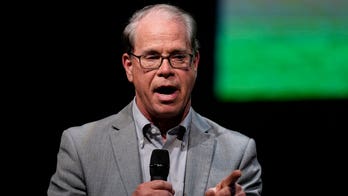One of the most outspoken abortion opponents in Congress labeled President Obama the "abortion president" on Friday in response to news that Obama intended to sign an executive order Monday lifting restrictions on federal funding for embryonic stem cell research.
Rep. Chris Smith, R-N.J., accused Obama of launching two attacks on pro-life measures. In addition to lifting President Bush's stem cell restrictions, Obama intends to lift regulations from the Bush administration that allow health care providers and institutions to refuse to participate in abortions on grounds of conscience.
Smith labeled Obama's stem cell policy an expansion of "human embryo experimentation."
"Why does the president persist in the dehumanizing of nascent human life when better alternatives exist? Human embryo-destroying stem cell research is not only unethical, unworkable and unreliable- it is now, demonstrably unnecessary," Smith said.
The long-promised move on stem cell research will allow a rush of research aimed at one day better treating, if not curing, ailments from diabetes to paralysis -- research that crosses partisan lines, backed by such notables as Nancy Reagan and the late Christopher Reeve. But it stirs intense controversy over whether government crosses a moral line with such research.
Embryonic stem cells are master cells that can morph into any cell of the body. Scientists hope to harness them so they can create replacement tissues to treat a variety of diseases -- such as new insulin-producing cells for diabetics, cells that could help those with Parkinson's disease or maybe even Alzheimer's, or new nerve connections to restore movement after spinal injury.
But the research is controversial because days-old embryos must be destroyed to obtain the cells. They typically are culled from fertility-clinic leftovers otherwise destined to be thrown away.
Under President Bush, taxpayer money for that research was limited to a small number of stem cell lines that were created before Aug. 9, 2001, lines that in many cases had some drawbacks that limited their potential usability.




